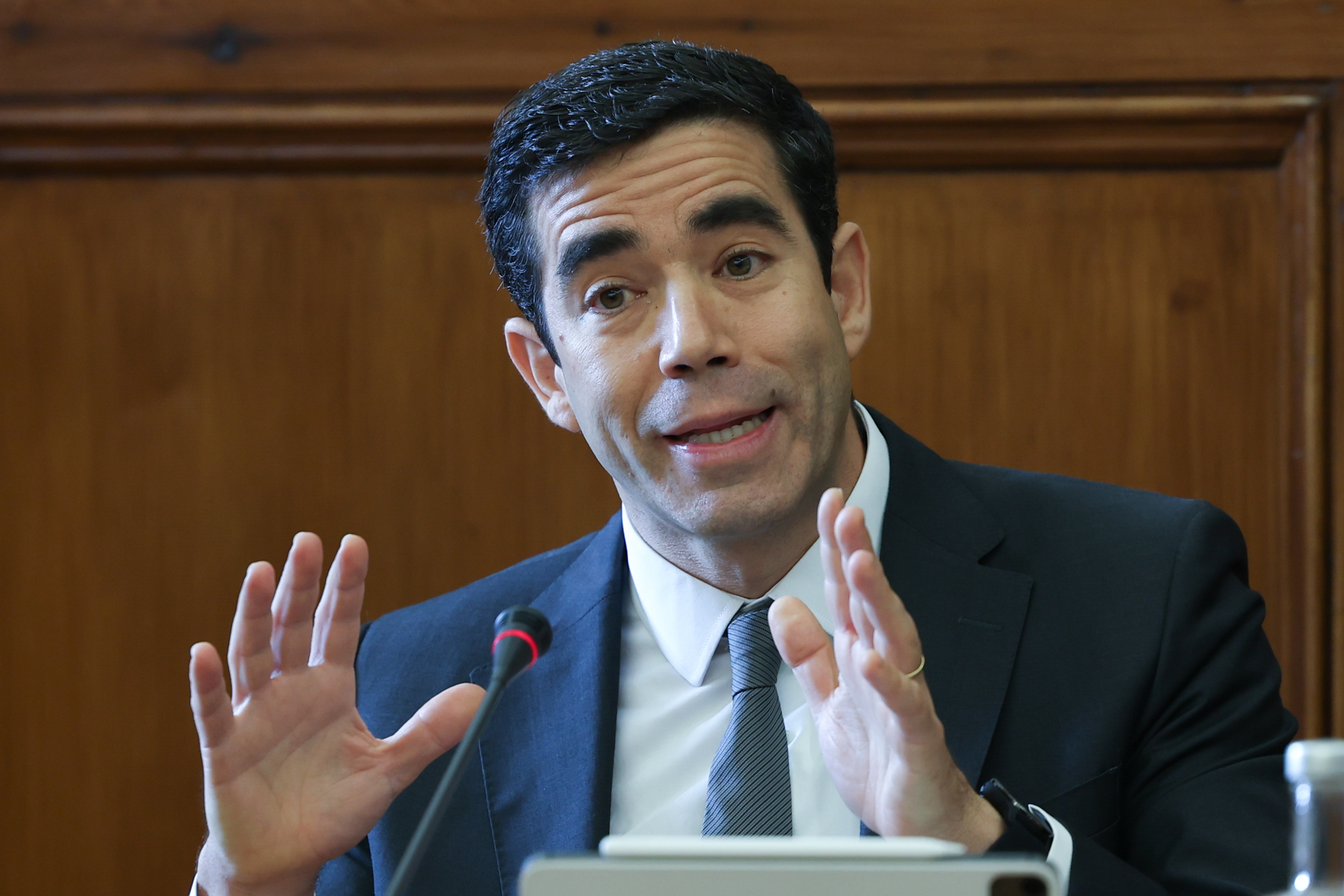In a major announcement for thousands of international investors, the Portuguese government has publicly committed to resolving the extensive backlog of pending
Golden Visa applications by 2026. The Minister of the Presidency, António Leitão Amaro, confirmed that Portugal's immigration agency, AIMA, is slated to process the remaining high-value residency applications, a move projected to generate €85 million in fees and finally bring clarity to investors who have been in administrative limbo for years.Key Takeaways
- ✓ Clear Timeline Provided: The Portuguese government has set a 2026 deadline for AIMA to clear the long-standing backlog of Golden Visa applications, ending years of uncertainty for investors.
- ✓ Explicit De-Prioritization: In a candid statement, the Minister of the Presidency revealed a 'moral' choice to leave the 'richest' applicants (Golden Visa investors) for 'the end of the line' after processing more vulnerable immigrant cases.
- ✓ Significant Revenue Generation: The processing of these applications is a line item in the 2026 State Budget, expected to generate €85 million in revenue for AIMA from processing fees.
- ✓ Investment Climate Implications: While providing a timeline, the government's narrative of de-prioritizing wealthy investors sends a mixed signal to the global investment community about their importance in Portugal's long-term strategy.
Speaking during the 2026 State Budget debate, the minister offered a remarkably frank explanation for the multi-year delays that have frustrated Golden Visa applicants. He outlined a deliberate prioritization strategy, stating that on a 'scale of moral values,' the government chose to first address applications from 'more poor and vulnerable' individuals, followed by CPLP citizens and those with expired residence cards. "Only after dealing with all of these, did we leave the richest for the end of the line," Leitão Amaro stated, explicitly confirming what many investors had long suspected.
This official confirmation, while potentially jarring for high-net-worth individuals who have invested significant capital in the Portuguese economy, is also a crucial piece of intelligence. It provides a definitive, albeit distant, timeline for the resolution of their cases. For investors and the ecosystem of professionals that support them, from property agents to specialized Golden Visa lawyers, this announcement allows for more concrete planning after years of ambiguity.
Market Implications for Investors
The announcement carries complex implications. For the thousands of investors already in the queue, the primary impact is positive: there is now a publicly stated deadline. This reduces the 'uncertainty risk' that has clouded their investment and personal planning. It may also unlock secondary investments and spending in Portugal from this cohort, who may have been holding back on further economic activity pending the resolution of their status. The news could provide a minor boost to the high-end property market as these residents finally gain the security to fully establish their lives in Portugal.
However, the narrative used by the government is a significant factor for the broader investment climate. The explicit framing of Golden Visa investors as the 'richest' and therefore the lowest priority could be interpreted as a sign of political hostility towards foreign capital. In the highly competitive global market for investment migration, such rhetoric can damage a country's reputation. Future investors may question whether their capital is truly welcome or merely tolerated, a consideration that could influence decisions on where to deploy billions in future FDI. This is a critical development for those tracking regulatory and legal frameworks in the EU.
AIMA's Operational Context
The sheer scale of the administrative challenge faced by AIMA provides important context. The agency inherited a staggering backlog of nearly one million pending cases upon its creation. According to official figures, this included 446,921 'manifestations of interest', 374,000 residence permit renewals, and 184,000 family reunification applications. The Golden Visa cases, while high in value, were a numerically smaller part of this overwhelming administrative burden.
Need Expert Guidance?
Get personalized insights from verified real estate professionals, lawyers, architects, and more.
The government's report that it has cleared 93% of the total pending files is presented as a major operational success and a victory for national security, as it involved vetting hundreds of thousands of individuals. From this perspective, the decision to sequence the workload, leaving the complex, document-heavy Golden Visa files for last, can be seen as a pragmatic, if politically charged, operational strategy. It highlights the critical importance of having flawless documentation and expert representation, often from English-speaking lawyers who can interface effectively with the agency.
Portuguese Immigration Policy Context
This move is part of a broader shift in Portugal's immigration policy under the current government, which emphasizes 'rigor, order, and control'. The mass regularization effort is aimed at moving from a chaotic, undocumented system to one where all foreign residents are properly registered and vetted. This is, in the long run, a positive step towards a more stable and secure society, which benefits all residents, including foreign investors.
- Strategic Sequencing: The government's decision to clear the massive backlog was based on a clear, albeit controversial, hierarchy of priorities, tackling the largest and most urgent humanitarian cases first.
- Administrative Overhaul: The creation of AIMA and the mission to clear the backlog represent a monumental effort to reform a failing administrative system.
- Balancing Act: The government is attempting to balance the economic benefits of investment migration with social integration and national security concerns.
- Future Policy Direction: This episode may signal a future policy direction that is less reliant on high-value investment migration programs and more focused on other immigration streams.
Investment Considerations
For investors with pending applications, the immediate strategy should be to prepare for action. This means working with their legal teams to ensure that all required documentation is in order and that they are ready to respond swiftly to any requests from AIMA in 2026. The public commitment to a deadline gives them a stronger position from which to demand action if the timeline begins to slip.
For the wider investment community, this is a moment for reflection. It underscores the reality that in any residency-by-investment program, the investor is not just buying an asset but is also entering into a relationship with a sovereign state, with all the political and administrative complexities that entails. Due diligence must therefore extend beyond the property or fund and include a sophisticated assessment of the political and bureaucratic environment. The stability of the legal framework and the efficiency of the state apparatus are as crucial as the potential for capital appreciation.
Looking Ahead
The pledge to clear the Golden Visa backlog by 2026 is a pivotal moment. It offers closure to thousands of existing investors and marks the end of an era for Portugal's investment migration landscape. The efficiency and fairness with which AIMA handles this final cohort will be a crucial test of its capabilities and will send a lasting message to the global investment community about Portugal's reliability as a partner.
While the government's rhetoric may have been unsettling for some, the commitment to resolve the situation is a necessary and welcome step. It paves the way for a more transparent and orderly immigration system, which is ultimately in everyone's interest. For expert strategic advice on navigating the post-Golden Visa investment landscape in Portugal, contact realestate-lisbon.com.






